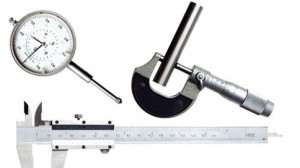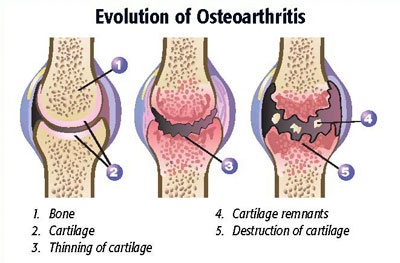 If you read the stuff I’ve written about oral joint supplements, and you’re still feeding your horse glucosamine, chondroitin sulfate, or MSM (methysulfonylmethane) a new study just got published that might just push you over the edge into saving some time and money (GASP).
If you read the stuff I’ve written about oral joint supplements, and you’re still feeding your horse glucosamine, chondroitin sulfate, or MSM (methysulfonylmethane) a new study just got published that might just push you over the edge into saving some time and money (GASP).
Workers in Sweden just published a study where they fed a joint supplement containing all three of the popular supplements.
SPOILER NOTE: If three things don’t work individually, they don’t work better when you combine them.
And one of the great things about the study was that they fed the horses the stuff for three months, which, if you’re really going to try to make an assessment, is an awfully good idea. I mean, if products that are supposed to “support” or “protect” or do something wonderful to or for joints and joint cartilage really do something, you’d think that it would show up in three months, right?
 Another great thing about the study is that it was well-designed. There’s an old phrase: “Garbage in – garbage out.” Honestly, it’s a problem that plagues many scientific studies, and especially in equine medicine, where it’s hard to get a lot of numbers in studies (the more horses you include in a study, the more likely that it is that the results can be applied to all horses in general), and where studies are often conducted under less-than-ideal conditions. But this one was a pretty darn good study.
Another great thing about the study is that it was well-designed. There’s an old phrase: “Garbage in – garbage out.” Honestly, it’s a problem that plagues many scientific studies, and especially in equine medicine, where it’s hard to get a lot of numbers in studies (the more horses you include in a study, the more likely that it is that the results can be applied to all horses in general), and where studies are often conducted under less-than-ideal conditions. But this one was a pretty darn good study.
 The researchers took 24 old horses (29 plus or minus 4 years, on average), and they split them into groups that got the supplement, and those that got a placebo. And, to my delight, they also did objective measurements, that is, instead of asking questions like, “What do you think, is he better?” they took objective measurements, measurements of stride length, of the range of motion of the knee, measurements of motion of the fetlock joint, and measurements of the range of motion of the hock.
The researchers took 24 old horses (29 plus or minus 4 years, on average), and they split them into groups that got the supplement, and those that got a placebo. And, to my delight, they also did objective measurements, that is, instead of asking questions like, “What do you think, is he better?” they took objective measurements, measurements of stride length, of the range of motion of the knee, measurements of motion of the fetlock joint, and measurements of the range of motion of the hock.
They were very thorough.
They compared the horses that had been getting the holy trinity of joint supplements to the horses who got nothing. And here’s what they found.
In one group, knee flexion measurements and fore fetlock extension measurements were significantly increased. Unfortunately, insofar as the supplement goes, that group was the control group.
Yeah, that’s right, the only improvement that was measured was in the horses that didn’t get anything.
ADVERTISERS, PLEASE NOTE: You can now truthfully say that when it comes to giving some joint supplement to an old horse, “Nothing is better than the supplement.” Just don’t ask anyone to think too hard about that statement.
 The authors concluded, “There were no indications of effect of the supplement on gait characteristics.” They had an explanation for the control horses getting better, too. They said it was probably either due to the fact that they got used to it, or to some effect of exercise. But, overall, “This study does not support the use of a glucosamine/chondroitin sulfate/methyl sulfonyl methane supplement to improve stiff gait in geriatric horses because of the lack of a sizeable effect.” You can see the study if you CLICK HERE.
The authors concluded, “There were no indications of effect of the supplement on gait characteristics.” They had an explanation for the control horses getting better, too. They said it was probably either due to the fact that they got used to it, or to some effect of exercise. But, overall, “This study does not support the use of a glucosamine/chondroitin sulfate/methyl sulfonyl methane supplement to improve stiff gait in geriatric horses because of the lack of a sizeable effect.” You can see the study if you CLICK HERE.
If you’ve been paying any attention, this really shouldn’t be a surprise. It was mid-2913 that a class-action suit was settled by a couple of major companies for making false claims (CLICK HERE to see my article). And there are all sorts of biological reasons to believe that the products just can’t work in horses (CLICK HERE to see another article that I wrote on the subject). As time has passed, the evidence that glucosamine and chondroitin sulfate doesn’t really help with – well, anything – is really starting to pile up.
And the products still sell like hotcakes.
 PHRASE EXPLANATION: The word “hotcake” dates back to the late 17th century, and the word ”pancake” (more common) first shows up in England around 1400. But the use of the phrase “selling like hotcakes,” which means that something is in great demand, didn’t show up until around 1840. There’s nothing in the historical record to suggest that there was some panic buying of pancakes around that time, so the most popular explanation, made by folks that look into word and phrase origins, assume that it simply refers to the fact that the breakfast favorite, popular at fundraisers and church socials, simply gets purchased about as fast as they can be made.
PHRASE EXPLANATION: The word “hotcake” dates back to the late 17th century, and the word ”pancake” (more common) first shows up in England around 1400. But the use of the phrase “selling like hotcakes,” which means that something is in great demand, didn’t show up until around 1840. There’s nothing in the historical record to suggest that there was some panic buying of pancakes around that time, so the most popular explanation, made by folks that look into word and phrase origins, assume that it simply refers to the fact that the breakfast favorite, popular at fundraisers and church socials, simply gets purchased about as fast as they can be made.
To end on a more sobering note, I really don’t think that any of this information matters to those that are making a handsome living selling glucosamine, etc., to those that are getting money for advertising the products, to those that are getting sponsorships, etc. I don’t think that the companies care one bit, either. When I did my study in 2011 that showed that 5 popular vitamin and mineral supplements didn’t appear to be made with any concern at all about what the horse actually needs (CLICK HERE to see it). When the Wall Street Journal published an article in 2011, called, “Is This the End of Popping Vitamins?” it quoted the CEO of GNC (the big supplement selling company) as saying, “The thing you do with [reports of studies] is just ride them out, and literally we see no impact on our business.” Apparently, negative studies don’t affect sales, mostly because people will believe what they want to believe.
 But now you know, and, heck, why not share this information with your friends? Based on the accumulated weight of the evidence, if you want to stop feeding glucosamine, chondrotin, MSM, etc., to your old horse(s), you can, secure in the knowledge that you’re not depriving your horse of anything.
But now you know, and, heck, why not share this information with your friends? Based on the accumulated weight of the evidence, if you want to stop feeding glucosamine, chondrotin, MSM, etc., to your old horse(s), you can, secure in the knowledge that you’re not depriving your horse of anything.
And you’ll save some money, too. Win: win, unless you’re in the business.









